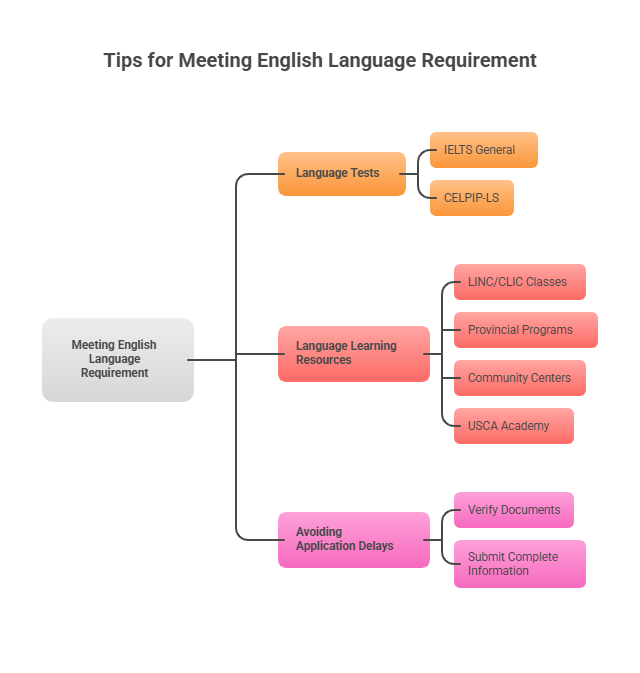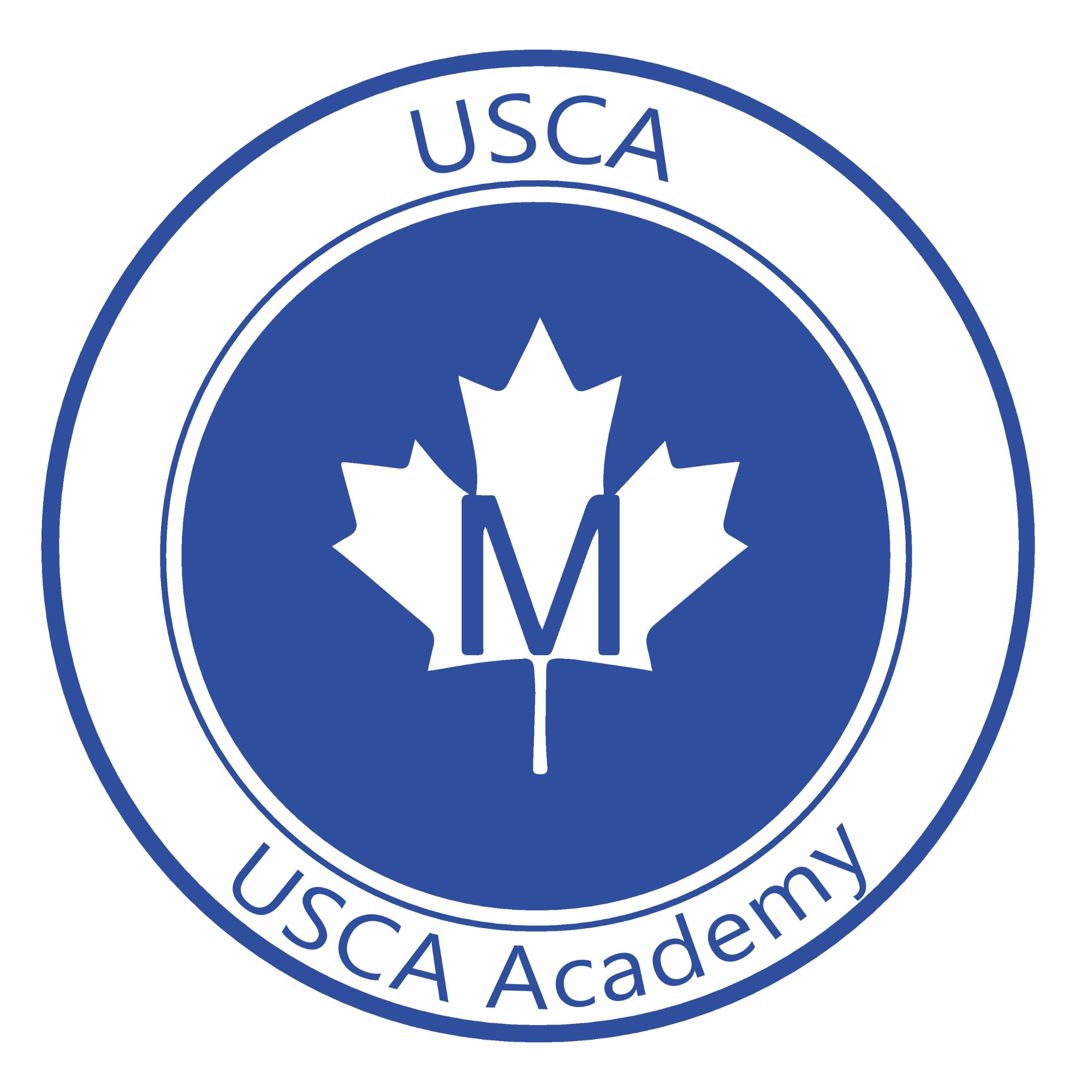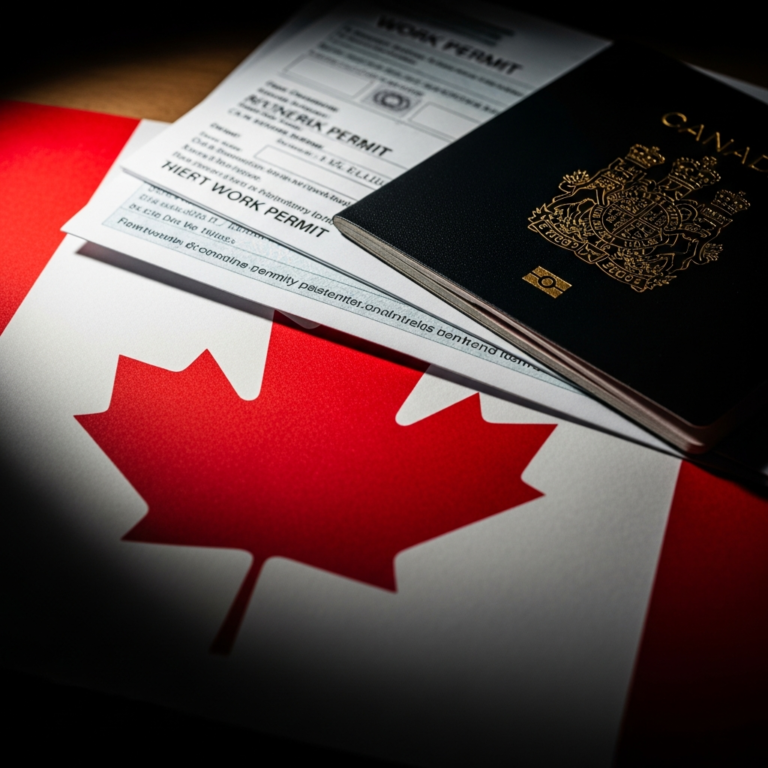Key Highlights of English Language Requirements for Citizenship
Here is a quick guide on what you need to know about language proficiency for Canadian citizenship:
- People who apply and are aged 18 to 54 must show that they know English or French.
- The level you need is Canadian Language Benchmark (CLB) 4 for speaking and listening.
- You can take a language test. Both IELTS for citizenship Canada (General Training) and CELPIP for citizenship Canada (LS Test) are okay to use.
- If you finished school from a program that was taught only in English or French, you can use that to prove language skills.
- There be language test rules for immigration, but some people do not need to take the test because of their age or medical reasons.
Introduction
The English language requirement for Canadian citizenship is essential for those seeking to become citizens. Canada has two official languages: English and French, and applicants must demonstrate proficiency in one of these languages to engage fully in Canadian life. When submitting your citizenship application, it’s crucial to provide proof of your language skills. This guide covers everything about the language requirement, including accepted tests, necessary scores, and alternative ways to prove language proficiency, as well as exemptions for certain individuals who may not need to meet this requirement.
English Language Requirements for Canadian Citizenship
To become a Canadian citizen, you must demonstrate English language proficiency, as required by the government for effective communication in one of the country’s official languages. While perfection is not necessary, reaching a designated proficiency standard is essential. Most applicants need to prove basic speaking and listening skills at CLB Level 4, which allows for everyday conversations and comprehension of simple instructions.
Why Canada Has Language Requirements for Citizenship
You may wonder why showing your knowledge of English is important. In Canada, language requirements help new citizens fit into society. You need to speak one of the official languages to manage daily tasks like shopping, banking, or visiting a doctor. Being able to speak English or French also helps you find work and connect with your community. The government sees this as key to participating in social and cultural life. Language tests check your speaking and listening skills, which you’ll use every day as a new citizen.
Basic Eligibility Criteria: Who Must Meet These Requirements?
The language requirement for Canadian citizenship applies to permanent residents aged 18 to 54. If you are in this age group, you must provide proof of English or French language ability when applying. Applicants younger than 18 or older than 54 are exempt from submitting language proof. Immigration, Refugees and Citizenship Canada (IRCC) verifies this eligibility. Below is a table outlining who must meet the language requirement:
Age Group | Language Proof Required? |
|---|---|
Under 18 | No |
18–54 years | Yes |
55 and over | No |
Recognized English Language Tests for Citizenship Applications
To demonstrate your language skills for Canadian citizenship, taking a formal test is essential. The government only accepts results from specific English language testing agencies. The two recognized tests are the International English Language Testing System (IELTS) and the Canadian English Language Proficiency Index Program (CELPIP). You must submit your test results with your citizenship application to prove you meet the required language proficiency levels set by the Canadian government.
Accepted Testing Options: IELTS and CELPIP Explained
When selecting a language test for Canadian citizenship, ensure you choose the correct version. Not all IELTS or CELPIP tests are accepted. Understanding which test meets citizenship requirements is important before you apply.
You must take one of these tests for your Canadian citizenship application:
- IELTS for citizenship Canada: Take the General Training test, not the Academic option. Your results must show your speaking and listening abilities.
- CELPIP for citizenship Canada: Take the CELPIP-LS test for Listening and Speaking. The CELPIP-General test is also accepted.
IRCC recognizes and accepts these tests. Book your test online through official websites, and choose the one that matches your skills and comfort level.
Required Scores and What They Mean (CLB Levels)
So, what English level is needed for Canadian citizenship? You must meet or exceed Canadian Language Benchmarks (CLB) Level 4 in speaking and listening. CLB 4 is a basic level: you can join simple conversations, understand everyday instructions, and use basic grammar and vocabulary on familiar topics. Reading and writing are not assessed for citizenship. To reach CLB 4, you need certain scores on approved tests. Here’s how accepted test scores match CLB Level 4:
Language Skill | CLB Level 4 Equivalent | IELTS (General Training) | CELPIP (LS or General) |
|---|---|---|---|
Listening | CLB 4 | 4.5 | 4 |
Speaking | CLB 4 | 4.0 | 4 |
Alternative Ways to Prove English Language Proficiency
Taking a language test is not the only way to meet the language requirement. If you have finished some types of education in English or French, you can show your language proof with your school records. This may help you save time and money since you do not have to take a language test.
You can also use certificates from some government-funded language training programs. Make sure your papers meet the rules set by IRCC. Just having a trade certificate by itself is not enough to show your language proficiency.
Using Educational Credentials as Proof
If you have a degree, diploma, or transcript from a school or college, you can use it as proof of language proficiency for Canadian citizenship, as long as all your classes were in English or French. This can be from a school in Canada or another country, such as a Bachelor’s degree from a university in the United States or United Kingdom. Simply taking a few courses in English is not enough you must have completed and graduated from the entire program. If your program wasn’t in English or French, it won’t count.
Submitting Proof from Completed Language Training Programs
Another way to prove your English language skills for Canadian citizenship is by completing a government-funded language training program. These programs support newcomers in improving their language abilities for daily life in Canada. If you finish a program and achieve at least CLB 4 in listening and speaking, you can submit your certificate as proof. Accepted programs include:
- Language Instruction for Newcomers to Canada (LINC) or Clic (CLIC)
- Provincial language training in Quebec, Manitoba, Ontario, or British Columbia
Ensure your certificate shows CLB 4 or higher; pre-2008 LINC or CLIC certificates are not accepted.
Exemptions and Special Cases for Language Requirements
Most applicants in Canada aged 18 to 54 must demonstrate language skills, but there are exceptions. These exceptions primarily apply to certain age groups and individuals with medical conditions. Understanding these exemptions can help you determine if you need to prepare for a language test or provide proof of education. If you qualify for an exemption, indicate this on your application and include any necessary documents to justify your exemption from the language requirement.
Age-Related Exemptions (Under 18 & Over 54)
The government sets simple rules for Canadian citizenship and English language needs based on age. If you are under 18 when applying, you do not need to show proof of English skills; minors often apply with parents and get this exemption. If you are 55 or older at the time of application, you also do not need to prove English ability. These rules help younger and older applicants become Canadian citizens more easily.
Other Exceptions for Applicants with Special Circumstances
Besides age, the language requirement may be waived for applicants facing special circumstances for compassionate reasons. These exemptions apply to those who cannot demonstrate their language skills due to their unique situation.
If a medical condition makes language learning or testing difficult, you may be eligible for a waiver. You could qualify if you have:
- A listening or speaking issue that is cognitive, psychiatric, or psychological.
- A physical disability that prevents you from completing the test.
You must provide official proof from a Canadian medical authority explaining your condition. IRCC reviews each case individually.
Tips for Meeting the English Language Requirement Successfully

Meeting the language requirement can be straightforward with proper preparation. It’s essential to demonstrate good language proficiency, so planning is key. Whether you opt for a language test or submit other documents, having a solid strategy is crucial. Here are some tips to prepare for the speaking test and find valuable language resources, helping you avoid mistakes that could delay your application.
How to Prepare for Language Tests
If you’re preparing for the English language test for Canadian citizenship, focus on your speaking and listening skills, as these are what the test measures. Get familiar with the IELTS General or CELPIP-LS tests. Practice English every day by speaking with others and listening to Canadian news or podcasts. This will boost your confidence and clarity.
Here are some steps to help you prepare:
- Take practice tests: Use the official IELTS and CELPIP websites for sample questions.
- Focus on the basics: Review grammar and sentence structure.
- Expand your vocabulary: Learn useful words for daily situations.
With regular practice, you’ll improve your skills and be ready for the test.
Language Learning Resources in Canada
If you want to improve your English before taking a citizenship test, Canada offers many helpful resources. Many programs are designed for newcomers and are often free, thanks to government funding. They focus on helping you reach the language level needed for citizenship. If you need to prove your English level, the Language Instruction for Newcomers to Canada (LINC) program is a great option, offering classes and skill assessments to place you at the right level. In addition to these programs, private institutions such as USCA Academy also provide tailored English courses to help learners meet citizenship requirements.
Here are the places you can try:
- LINC/CLIC Classes: Offered in many regions for permanent residents.
- Provincial Programs: Attend ESL/FSL in Ontario or ELSA in British Columbia.
- Community Centers: Local centers often have free or low-cost conversation groups and support.
- USCA Academy: Offers specialized English language programs for newcomers preparing for citizenship.
Avoiding Application Delays and Rejections
A mistake in your language proof can delay or even get your application rejected. To prevent this, ensure your documents meet all IRCC requirements before submission.
Common errors include sending the wrong test results, such as IELTS Academic instead of General Training, or providing proof from a program not fully taught in English or French.
To help your application:
- Verify your documents: Ensure your test results are from an approved provider and your diploma/transcripts show you finished a qualifying program.
- Submit complete information: Provide all details; missing info or unrecognized schools can cause rejection.
Double-check your English or French language proof and test results to avoid issues with IRCC.
Conclusion
To sum up, knowing the English language requirements for citizenship in Canada is very important for all applicants. These rules help people talk well and become part of Canadian life. You should get to know the accepted tests, what scores you need, and other ways you can show your skills. This helps you make your application easier. Also, think about exemptions that may fit you, like those based on age or special cases. This could help with your application.
When you prepare well and use all the tools out there, including resources like USCA Academy, your chances of getting Canadian citizenship get better. If you have any questions or want more help, reach out anytime. Making smart choices is the first step on your path to Canadian citizenship!
Frequently Asked Questions
1. Can I use expired IELTS or CELPIP results for my citizenship application?
Yes, you can use test results that have expired for your Canadian citizenship application. IRCC will accept IELTS and CELPIP scores for Canadian citizenship even if it has been more than two years since you took the test. This rule is special because other immigration programs need new test results. Make sure your scores meet at least CLB 4 for Canadian citizenship.
2. What can I do if I can’t get official proof of my English language ability?
If you studied in English or French but can not get official proof from your school, you have to take an approved language test. There is no other way to meet the language requirement. All applicants need to show valid proof, so you will need to take the IELTS or CELPIP in this case.
3. How do Canada’s language requirements compare to those in other countries?
Canada’s language requirement for citizenship is simple. You only need to show basic speaking and listening skills in English at CLB 4. Other countries, like the UK, ask more from people who apply. In the UK, applicants must pass a “Life in the UK” test in English. They also need to show language skills at a B1 level, which is harder and includes reading and writing.









